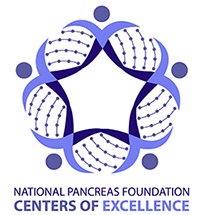Inova Gastroenterology
Inova Gastroenterology (GI) is Northern Virginia’s home for advanced diagnosis and management of diseases and conditions affecting the digestive system, including the esophagus, stomach, gall bladder, bile ducts, liver, pancreas, intestine, colon and rectum, and is the largest such division in the Washington, DC, metropolitan region.
Our multidisciplinary team of gastroenterology and hepatology experts includes specialists in the latest diagnostic and minimally invasive endoscopic techniques, supported by leading-edge technology from the region's top health system. Our experts are part of multidisciplinary teams from gastroenterology, oncology and surgery, providing patients with state-of-the-art options for the management of digestive disorders.


 Inova Fairfax Hospital has been nationally recognized as a National Pancreas Foundation Center of Excellence. This designation distinguishes Inova Fairfax Hospital as an institution providing the best and most innovative multidisciplinary treatment for pancreatic cancer.
Inova Fairfax Hospital has been nationally recognized as a National Pancreas Foundation Center of Excellence. This designation distinguishes Inova Fairfax Hospital as an institution providing the best and most innovative multidisciplinary treatment for pancreatic cancer.